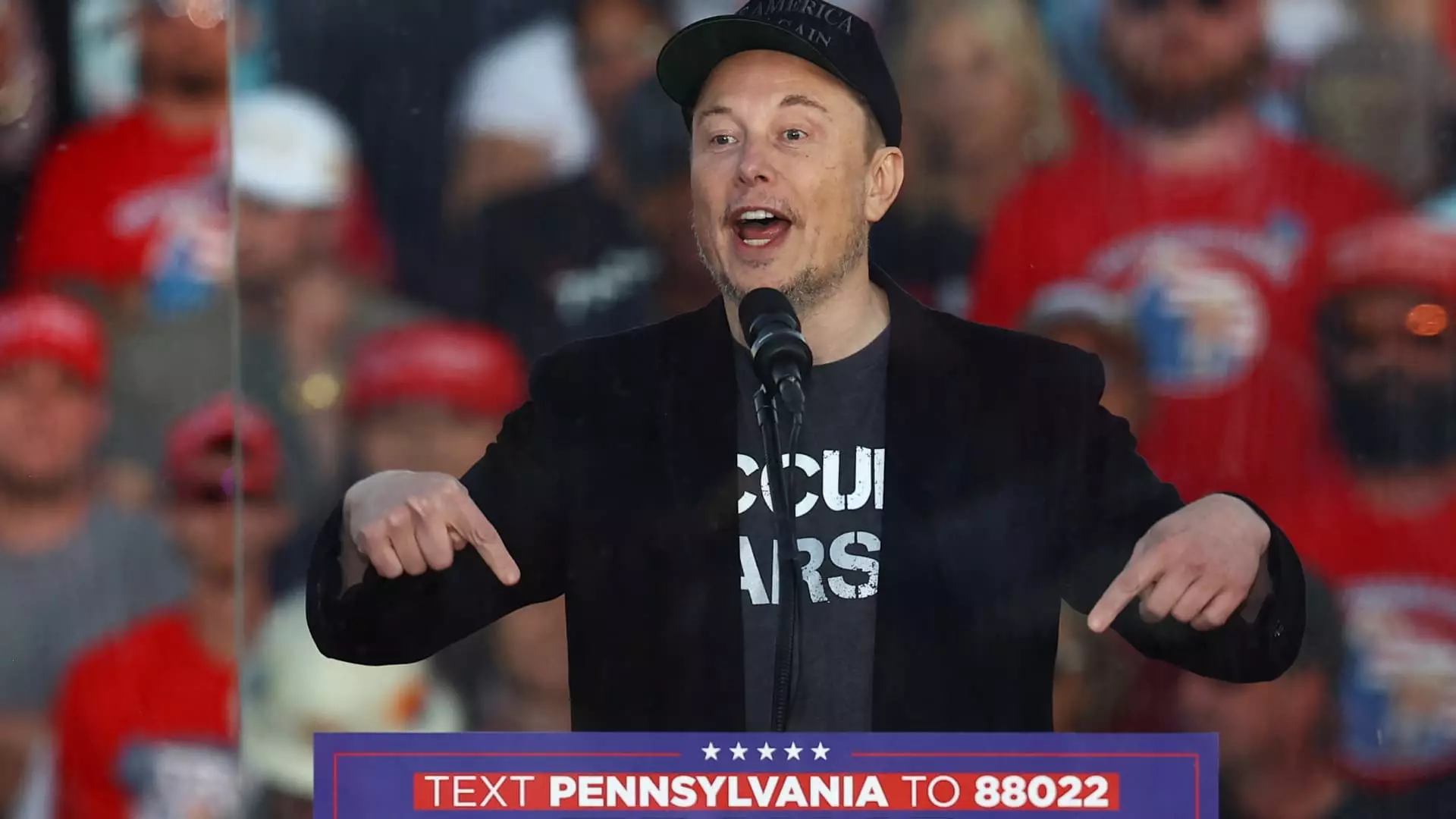In the world of contemporary politics, the intersection between technology, media, and wilderness of the electoral process prompts both intrigue and skepticism. The recent activities of Elon Musk, the CEO of Tesla and X—previously Twitter—have added a complex layer to this dynamic. His endorsement of Donald Trump for the upcoming presidential election combined with a unique referral incentivization strategy raises several questions. The mix of financial incentives and political campaigning not only illuminates Musk’s own influence but also highlights ethical considerations surrounding modern electoral practices.
Musk recently promoted an initiative by America PAC, a political action committee supporting Trump, that offers a $47 referral bonus for each swing-state voter who signs an online petition. While the idea might initially seem engaging, it obscures more profound implications. This method of political mobilization commodifies voter registration, effectively framing civic engagement as a transaction. It reduces the act of participating in democracy to a mere financial incentive, which could deter genuine commitment to the causes the petition claims to uphold, such as First and Second Amendment rights.
By posting on X, Musk impulsively encourages his followers to capitalize on a monetary scheme under the pretense of promoting ideologies that are traditionally rooted in civic duty, not financial “gain.” This raises ethical concerns about the commodification of voter engagement and potentially undermines the integrity of the electoral process. It also speaks volumes about how political campaigns may increasingly sway toward financially driven practices in lieu of authentic grassroots movements.
The petition promoted by Musk supports constitutional rights but is notably vague about the specifics regarding how users’ information will be utilized. Such opacity is disconcerting, considering the personal contact details required from participants. A hallmark of credible petitions is their clarity and purpose—core characteristics missing from this initiative. The petition offers no indication of when or how the signatories’ voices will be presented to those in power, leaving participants in the dark about the impact of their engagement, if any.
Critically, the lack of informative content and stated goals sounds alarm bells about transparency in political fundraising and outreach efforts. A morally delicate line is being tread where the collection of personal information may offer a strategic advantage in campaign efforts while simultaneously endangering constituents’ rights to privacy and informed participation.
The unique coupling of high-profile figures like Musk with contentious political strategies could destabilize public trust in leadership. Musk’s continued association with the PAC and its questionable tactics raises the question of ethical leadership in politics. His presence alongside Trump at a recent rally, which carried significant undertones given Trump’s experience with threats to his safety, further complicates the narrative. Musk declared the importance of this election as pivotal for preserving democracy, yet his actions might inadvertently weaken it through potentially exploitative practices.
Moreover, Musk’s promotion of a scheme that drew scrutiny earlier this year from state regulatory bodies demonstrates a pattern that could erode perceptions of accountability in political fundraising. The PAC’s prior investigations revealed an alarming propensity to prioritize data collection over ethical engagement, an issue exacerbated by the involvement of influential figures who could sway public opinion and fundraising practices without proper accountability.
As America grapples with an increasingly polarized political climate, the role of influential business magnates like Musk in the political sphere invites ongoing scrutiny. The blend of financial incentives with political campaigning calls for a reexamination of how voter mobilization is conceptualized in the digital age. To preserve the essence of democracy, activism must transcend commerce, promoting not only participation but a holistic, ethical, and transparent approach to political engagement.
While innovative strategies may appeal to electorates in swing states, they fundamentally risk undermining the very fabric of civic involvement that democratic societies are built upon. As individuals like Musk reshape political landscapes, a critical analysis of their methods and transparency will be paramount in safeguarding democratic principles.

Leave a Reply